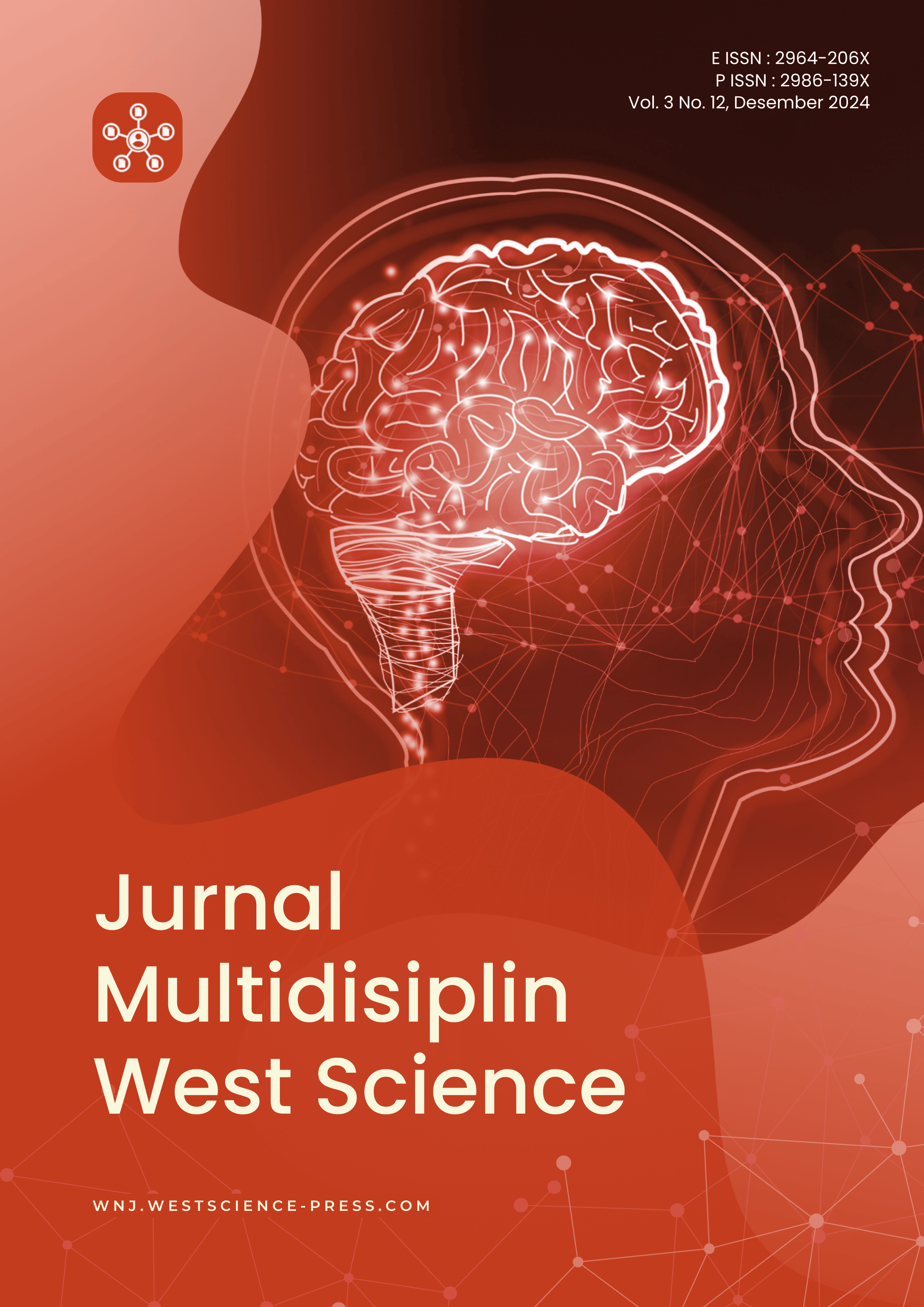The Analysis of In-Depth Interviews Importance in Identifying Hotel Employee Skills
DOI:
https://doi.org/10.58812/jmws.v3i12.1838Kata Kunci:
Employee, Identifying, Interview, SkillAbstrak
This study aims to explore the role of in-depth interviews as a method for evaluating digital skills, motivation, and the soft skills of hospitality employees in the digital era. A qualitative approach is used to provide a deeper understanding of employees' intrinsic motivation and soft skills, which are often difficult to measure with technology-based evaluation tools. This study uses qualitative research method with a descriptive approach to gather and analyze the importance of in-depth interview in identifying hotel employee skills. There were five manager and 45 employees at AAA hotel in Nusa Dua. According to research conducted by the World Hospitality Group (2023), 65% of hotel managers reported that employees' interpersonal skills are a key factor in guest satisfaction, while 55% emphasized the importance of motivation derived from job satisfaction and support from the work environment. Deloitte's (2022) study showed that 48% of hotel employees felt their digital skills were insufficient to face challenges in the digital era, yet 70% of employees stated they were motivated to improve those skills if given the right training opportunities. This highlights the importance of a comprehensive approach in human resource management, where in-depth interviews can help uncover training needs that may not always be evident from quantitative data or technical evaluation results.
The findings show that in-depth interviews not only help hotel management explore employees' intrinsic motivation but also identify critical soft skills development areas in guest services, such as empathy, communication, and the ability to handle difficult situations. In a case study involving manager of AAA hotel in Bali, it was found that 60% of employees (27) with high soft skills managed to improve guest satisfaction scores. 20% (9 employees) focused on technical skills. This underscores the importance of a holistic approach to human resource evaluation and development in the hospitality sector. This study recommends using in-depth interviews as part of a broader human resource management strategy in the hospitality industry, particularly in identifying and developing employees' interpersonal skills and motivation, which are crucial in the digital era. In-depth interviews have proven effective in uncovering non-technical aspects that significantly contribute to guest satisfaction and the operational success of hotels.
Referensi
Adi Pratama, I. W., & Diwyarthi, N. D. M. S. (2024). Optimization of Human Resources and Utilization of Information Technology in Driving the Digital Economy. West Science Information System and Technology, 2(01), 49–57. https://doi.org/10.58812/wsist.v2i01.829
Desak, N., Santi, M., Gede, N., Wiartha, M., Luh, N., Sri, G., & Luh, N. (2024). Pendampingan Penguatan Minat dan Ketrampilan Masyarakat Desa Wisata. 2(May), 198–208.
Filipe, S., Santos, C. A., & Barbosa, B. (2018). Tourists’ Motivations and Obstacles for Choosing Glamping: an Exploratory Study. CBU International Conference Proceedings, 6, 113–119. https://doi.org/10.12955/cbup.v6.1142
Iii, B. A. B., & Pendekatan, A. J. (2016). B . Setting Penelitian C . Subyek Penelitian. 35–47.
Josua, F., Alwie, A. F., & Hendriani, S. (2017). The Effect of E-Service Quality and Price on Customer Satisfaction and Loyalty of Traveloka in Pekanbaru. International Journal of Economics, Business and Applications, 2(1), 9–22.
Made, N., Purwaningsih, P., Putu, N., Sari, R., Sulistyawati, A. S., Pariwisata, D. I. V, Pariwisata, F., Udayana, U., No, J. G., & Fax, T. (2018). Preferensi wisatawan mancanegara dalam pemilihan akomodasi di desa wisata nyuh kuning ubud , bali. 2(3), 195–213.
Pakpahan, R. (2018). Implementasi Prinsip Pariwisata Berbasis Komunitas Di Desa Wisata Nglinggo Yogyakarta. Jurnal Master Pariwisata (JUMPA), 05, 129. https://doi.org/10.24843/jumpa.2018.v05.i01.p07
Prenada, M. (2005). Teori Fungsionalisme Strutural Agil Talcott Parsons. Sosiologi, 12–15.
Putranto, A., Febrian, W. D., Sanjaya, F., Santosa, S., & Adi, I. W. (1920). Tantangan Komunikasi dalam Negosiasi Bisnis Lintas Budaya. 5(2), 1920–1924.
Scheyvens, R., & van der Watt, H. (2021). Tourism, empowerment and sustainable development: A new framework for analysis. Sustainability (Switzerland), 13(22). https://doi.org/10.3390/su132212606
Setiadi, N. J. (2013). Perilaku Konsumen. Perilaku Konsumen, 10.
Virgianne, Y., Ariani, N. M., & Suarka, F. M. (2019). Pengaruh E-Service Quality Terhadap Kepuasan Wisatawan Nusantara di AiryRooms Kecamatan Kuta Bali. Jurnal Kepariwisataan Dan Hospitalitas, 3(1), 108–125.
Wahidaty, H. (2021). Manajemen Waktu: Dari Teori Menuju Kesadaran Diri Peserta Didik. Edukatif : Jurnal Ilmu Pendidikan, 3(4), 1880–1889. https://edukatif.org/index.php/edukatif/article/view/1015
Widyarsih, A. R., CAHAYA, Y. F., & Chairul, A. G. (2023). The Influence Of Brand Image, Viral Marketing, And Product Quality On Purchase Intention. Adpebi International Journal of Multidisciplinary Sciences, 2(1), 102–109. https://doi.org/10.54099/aijms.v2i1.460
Unduhan
Diterbitkan
Cara Mengutip
Terbitan
Bagian
Lisensi
Hak Cipta (c) 2024 Ni Wayan Amelia Pratiwi, Putu Divyanti Permata Devi, Irvan Syahputra, Naufal Rafi Dziaulhaq, Satria Yudha Arya Wiraraja, Ni Desak Made Santi Diwyarthi

Artikel ini berlisensiCreative Commons Attribution-ShareAlike 4.0 International License.



















 Instagram
Instagram 